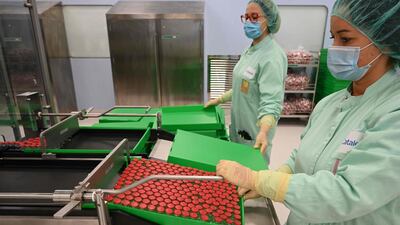British spies are trying to protect the country’s vaccine secrets from foreign powers who threaten to derail clinical trials by sabotaging the work of scientists.
MI5 director general Ken McCallum said on Wednesday that hostile states are trying to either steal or ruin the UK’s work to develop an injection that provides immunity against coronavirus.
The Oxford vaccine is one of the world’s most closely-watched clinical trials and is a front runner in the global race for the jab.
The UK previously accused Russia of trying to hack the computer networks of British organisations involved in the development of a vaccine.
Mr McCallum said the intelligence community was working around the clock to safeguard the work of UK scientists.
He said: "I guess there are two bits we are on the lookout for: attempts either to steal unique intellectual property that's been generated in that research or potentially to fiddle with the data.
"And then the second risk we've got to be alive to is the possibility that the research is still high integrity and sound, but that somebody tries to sow doubt about its integrity."
Mr McCallum’s remarks came as international security experts said that powerful countries could weaponise the jab to force other nations to bend to their will.
Dr Patricia Lewis, research director for international security at Chatham House, suggested that countries with a vaccine could keep it from those without to achieve their political aims.
"It happens in almost every situation like this," she said.
“It happens in big decisions on treaty negotiations, or in terms of supporting powerful countries in votes on the UN Security Council.
“It would be really strange and unusual if it didn’t happen in this case.”
Dr Lewis said programmes such as the Covax initiative, which aims to deliver vaccines to poor countries, were key to stopping powerful countries bullying smaller nations into submission.
She said: “We’re only as safe as each other, we’re all in this together, and that’s the kind of leadership we need.”
Former World Health Organisation communicable diseases director Prof David Heymann said that the world was right to be sceptical of Russia's secretive Sputnik V vaccine.
He said: “The reason people don’t trust the Russian vaccine is because they haven’t been transparent with the data they have already.”
According to the WHO, more than 150 potential vaccines are being developed and tested globally, with 42 undergoing trials on human beings.









